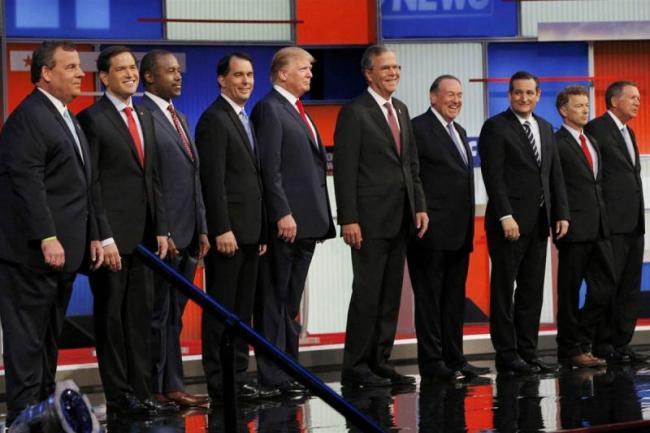Expanding Liberty: From Abolition to Right-to-Work

Presidential candidates on labor liberty
Republican candidates should care about right-to-work as a continuation of the Party’s founding goal of expanding liberty for all Americans.
With the Friedrichs v. California Teachers Association case now before the Supreme Court, the issue of forced unionization is now part of the national conversation. This case is showing the United States how all California public teachers are forced to financially support political activity by teachers unions.
Right-to-work is an escalating issue and voters may be wondering where the Presidential candidates stand. Here’s what we know about some of the GOP candidates:
Rand Paul – Supports Right-to-Work
In February 2015, Paul iterated his support of right-to-work in a co-authored article with Kentucky Senator Mitch McConnell, published in the Nelson County Gazette. Further promoting right-to-work throughout the state, Paul was also represented on a panel sponsored by Americans for Tax Reform and the Center for Worker Freedom in Bowling Green, Kentucky on May 18, 2015.
Not only does Paul support right-to-work in his state, he also supports it at the federal level. On January 31, 2013 Paul introduced bill S.204 in the U.S. Senate as a national right-to-work law.
Ted Cruz – Supports Right-to-Work
As a co-sponsor of Paul’s bill introduced in the U.S. Senate, we know Cruz supports right-to-work.
Marco Rubio - Supports Right-to-Work
Rubio was also a co-sponsor of Paul’s U.S. Senate bill.
In October 2015, Rubio spoke further on the issue with South Carolina Attorney General Alan Wilson at the Conservative Leadership Project Presidential Forum. Here is his response when asked, “What are your views on right-to-work and how would those views impact your appointments to the NLRB [if elected President of the United States]?”
“If someone works at a firm, and they like the work conditions in this place, and they’re paid well, they’re compensated well, and the benefits are good, and they don’t want a union, why should they be forced by law to have to join? In fact in many cases, it’s a pay cut. Because now those union dues are automatically deducted from their paycheck. And so in essence, you’re paying someone to join an organization that you see no need for.”
Donald Trump – ?
In a discussion about Wisconsin Governor Scott Walker’s collective bargaining reforms with Bill O’Reilly on March 30, 2011, Trump stated that he “has a great relationship with unions.”
Trump also has a wide variety of real estate and construction projects around the world, built by workers who may belong to unions. This could explain his following comment on Walker’s union reforms: “I think he is maybe right for his state. I think it doesn’t necessarily apply to all states.”
Trump went on to say, “I have great friends that are in unions and heads of unions … I think you have to do what’s right for your area.”
Hmmm.
John Kasich – ?
Ohio Governor John Kasich doesn’t have right-to-work on his “agenda,” as stated at an Associated Press legislative preview session on January 30, 2014 in Columbus. If he doesn’t have right-to-work on his agenda as Governor of Ohio, it’s likely that he wouldn’t as President.
However, it should be noted that Kasich at one point did sign a Senate bill for public union reform in Ohio on March 31, 2011. The bill was ultimately defeated in a veto referendum on November 8, 2011. This may explain Kasich’s ambivalence toward right-to-work.
***
Stay tuned for more information on the candidates’ stances on right-to-work and labor liberty.





